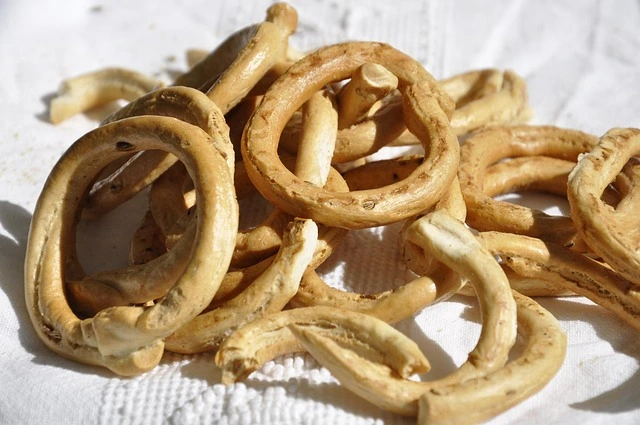Taralli Pugliesi: The Soulful Snack of Southern Italy
Taralli Pugliesi, also known as Apulian Taralli, are more than a local delicacy—they are bite-sized symbols of Puglia’s culture, resilience, and culinary heritage. Born from humble ingredients and centuries of southern Italian wisdom, these crunchy rings continue to charm tables around the world.
Learn more about the history of Taralli on Wikipedia
Explore traditional Southern Italian recipes on Eataly.com
The Origin of Apulian Taralli: A Story Baked in Hardship
During the 15th century, amidst famine and scarcity, a Puglian mother combined simple ingredients—flour, olive oil, salt, and white wine—to create a nourishing snack for her family. What came out of her oven became the first Apulian Taralli. Ring-shaped, boiled, then baked, these savory treats started a culinary tradition that endures.
Why Apulian Taralli Are So Loved Across Italy
The unique appeal of Taralli Pugliesi lies in their rustic charm and unmistakable crunch. The secret? A double-cooking process that includes boiling and then baking. Flavored with fennel seeds, chili, black olives, or onions, they reflect the creativity of southern Italy. Over the years, sweet versions have also emerged, featuring lemon glaze or dark chocolate—often served with coffee or dessert wine.
Looking for authentic Apulian products? Visit TasteAtlas
Apulian Taralli & Your Dream Wedding in Puglia
Planning a destination wedding in Puglia? Apulian Taralli add a personal and traditional touch to any celebration. Include them in your welcome bags, use them as unique wedding favors, or serve them during your aperitivo hour—they’ll be remembered as one of the most authentic flavors of your day.
Classic Pairing: Taralli Pugliesi and Wine
There’s a reason locals say, “It all ends with taralli and wine.” Pair your Apulian Taralli with robust red wines like Primitivo or Negroamaro, or enjoy them with a chilled artisanal beer. Whether savory or sweet, these bites elevate any moment—especially when shared.
Taste, Share, Remember
From humble kitchens to elegant wedding banquets, Taralli Pugliesi embody the spirit of Southern Italy. Add them to your celebration and let your guests experience the warmth, authenticity, and tradition of Puglia—one perfect crunch at a time.


